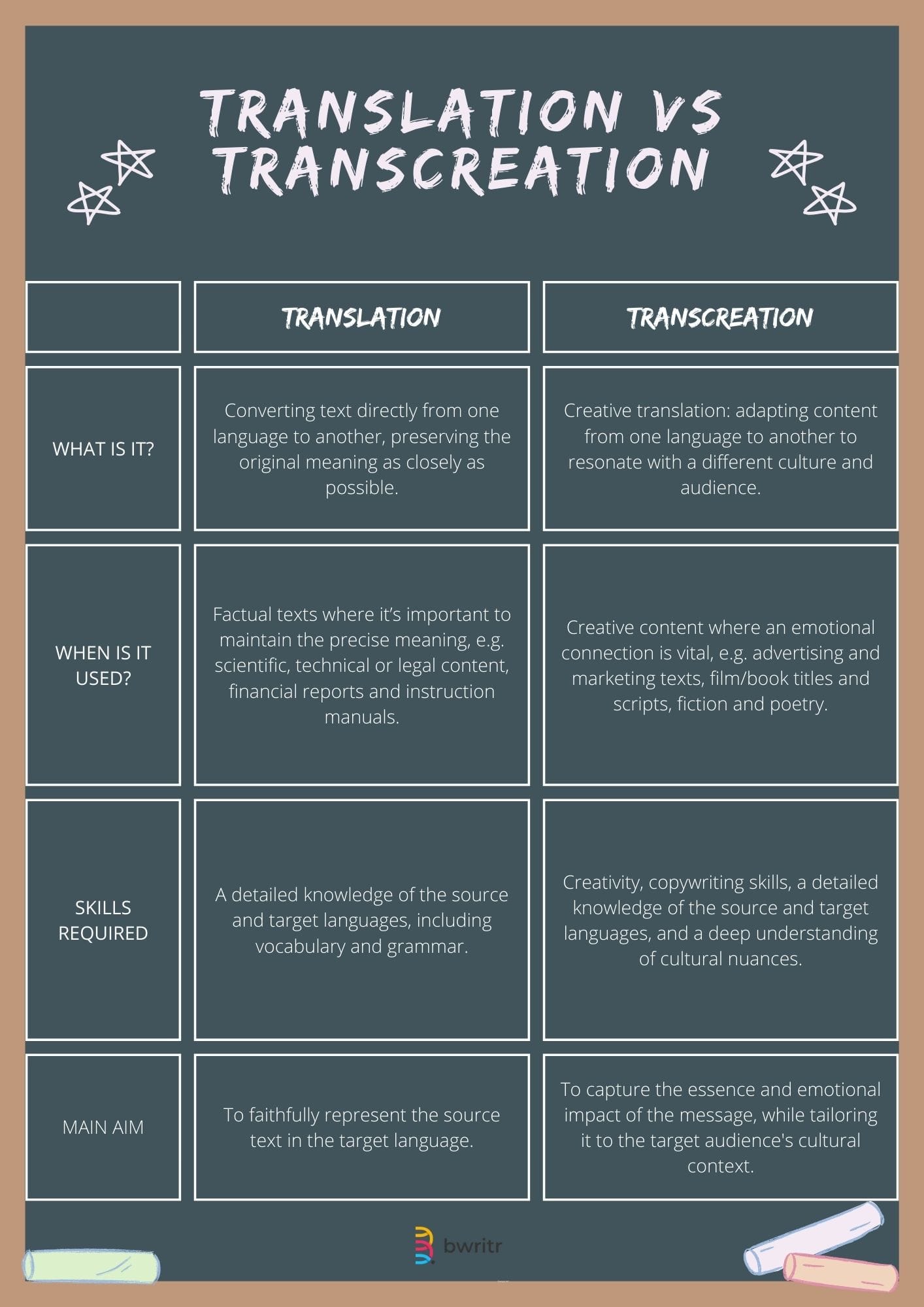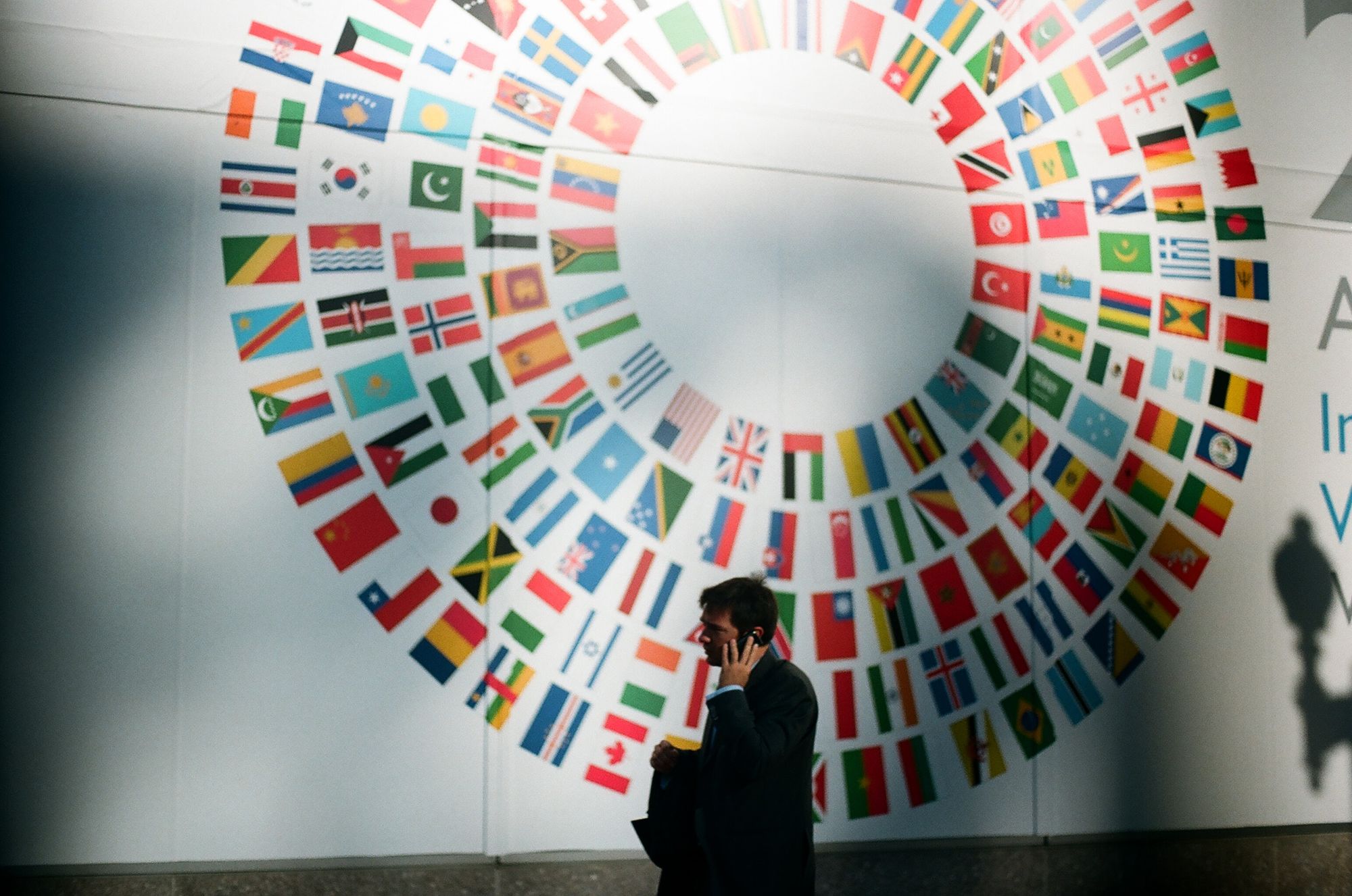If you want to reach a global audience, speaking your customers’ language is a must. Multilingual content can help you reach more people, avoid misunderstandings and create a more inclusive brand image.
But do you need translation or transcreation services to get your message spot-on in every language? If you’re confused about the difference, you’re not alone. Here’s a simple guide to help you find the right way forward.
The differences

Transcreation in action
Here are some inspiring examples of creative translations that hit the spot in different languages:
- The hit French TV series ‘Dix Pour Cent’ is known as ‘Call My Agent!’ in English: a snappy, well-known phrase that hints at both the subject matter (a talent agency) and genre (comedy).
- Song lyrics can be particularly challenging to translate, as they may include rhyming phrases and English is often shorter than other languages. Transcreators get around this problem by expressing the same idea using different words. For example, in Latin American Spanish the song ‘Let it go’ from Disney’s Frozen movie is called ‘Libre soy’ (I am free): same sentiment, same number of syllables.
- In German, the Haribo slogan ‘Kids and grownups love it so, the happy world of Haribo’ becomes ‘Haribo macht Kinder froh, und Erwachsene ebenso’ (Haribo makes children happy, and grown-ups too). Although the meaning is slightly different, the essence – and the catchy rhyme – are still there.
“Transcreation allows me to focus on the product, target market and original concept, adapting campaigns to speak to the market we’re targeting. It’s always a challenge: one that guarantees the exhilaration of finding the right words.” – Glynis Loizeau, Transcreator at Bwritr

Want to make your content shine in every language?
Contact us to discover more about our translation, transcreation and language localisation services.






